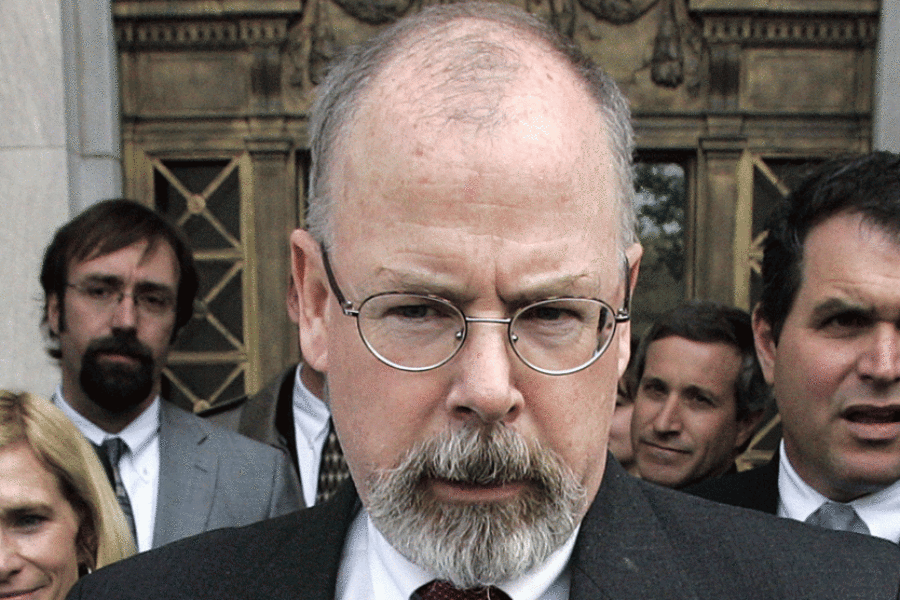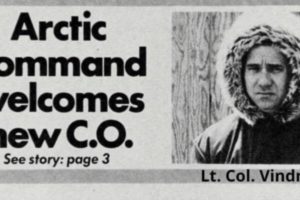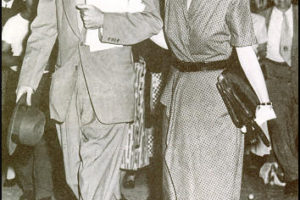Yesterday The American Spectator published my take on Special Counsel John Durham’s report. As you will see, I raise serious questions about the conduct of Durham’s investigation of the FBI’s involvement in the 2016 presidential election.
According to Durham’s report, former FBI Director James Comey, Deputy Director Andrew McCabe and other officials declined to be interviewed by the Special Counsel’s Office. Yet the report makes no mention of whether Durham called those individuals before the grand jury to compel their testimony.
That would have been the obvious way to deal with recalcitrant witnesses. But the report makes no mention of Durham doing that. Why not?
Reader reaction has been about as expected. A number of AmSpec readers have criticized me for not flat out accusing Durham of covering for the deep state. But such criticism wouldn’t account for the devastating content of the report that spells out how the FBI tried to undermine Donald Trump’s campaign.
In any event, late yesterday afternoon, the Daily Mail ran an article about Republican senators Ron Johnson and Charles Grassley writing to Durham about the FBI’s lack of cooperation. The gist of the article is here:
“It seems odd that individuals would be allowed to avoid fully cooperating with your office, particularly given your authority to compel testimony and records,” they [the senators] write.
The Republicans are pressing Durham to provide information on whether Durham issued subpoenas to those specific individuals and whether DOJ “impeded” any of his office’s investigative practices.
According to the Daily Mail, Durham is scheduled to testify before the House Permanent Select Committee on Intelligence on June 20. So stay tuned.
The Durham Report’s Missing Piece – The American Spectator | USA News and Politics

On August 8, 2016, lawyer Lisa Page was the special assistant to FBI Deputy Director Andrew McCabe. Peter Strzok was the deputy assistant director of FBI Counterintelligence. On that day, they emailed each other as follows:
Page: [Trump’s] not going to become president, right? Right?
Strzok: No. No, he’s not. We’ll stop it.
According to Special Counsel John Durham’s report, one week before this exchange, Deputy Director McCabe had ordered Strzok to open a counterintelligence investigation to determine whether individuals associated with Donald Trump’s presidential campaign were “witting of and/or coordinating activities with the Government of Russia.”
McCabe directed Strzok to omit the FBI’s usual preliminary analysis and verification of the information on which the investigation was to be predicated. Instead, the so-called “Crossfire Hurricane” inquiry was launched on the basis of “unevaluated intelligence information.” (READ MORE: Peter Strzok, Villain)
As stated in the report, in the conduct of Crossfire Hurricane, “senior FBI personnel displayed a serious lack of analytical rigor” toward “information received from politically affiliated persons and entities.” This included “significant reliance on investigative leads provided or funded (directly or indirectly) by Trump’s political opponents.” Neither these materials nor the “motivations of those providing them” were “adequately” examined or questioned even though, at about the same time, FBI Director James Comey and others “learned of significant and potentially contrary intelligence.”
In this last regard, the report describes an August 3, 2016, White House conference at which CIA Director John Brennan briefed President Barack Obama, Director Comey, and other senior administration officials about an “alleged approval by Hillary Clinton on 26 July of a proposal from one of her [campaign] advisors to vilify Donald Trump by stirring up a scandal claiming interference by the Russian security services.”
Nevertheless, despite this cautionary briefing, Comey ordered the investigation of Trump’s campaign to go forward.
The report demonstrates that the purported predication for the investigation was “thin” to nonexistent. But, despite the reservations and objections of underlings, Comey, McCabe, and Strzok gave top priority to the investigation.
For example, one FBI special agent related that, in the fall of 2016, members of the Crossfire Hurricane team met with operatives from the British Intelligence Service to request help in investigating Trump campaign adviser Carter Page. When the agents played a surreptitious audio/video recording of Page meeting with an FBI informant, one of the Brits remarked, “For [expletive] sake, man. You went through a lot of trouble to get him [Page] to say nothing.” As for helping the FBI go after Page, another one of the Brits “basically said there was no [expletive] way they were going to do it.”
But, according to the special agent telling the story, FBI executive management was pushing the matter so hard that “there was no stopping the train” and “this thing was coming. So my job was to grease the skids for it, and that’s what I did.”
Similarly, when field agents proposed simply interviewing Page about his supposed Russian ties, management prohibited them from doing so. Instead, Comey and McCabe directed that FISA warrants be obtained to conduct electronic surveillance of Page.
An attorney who prepared the FISA application stated that he was “constantly pressured” by “management” to “get” the “Page FISA.” And, as previously reported to the Justice Department’s Office of Inspector General, this pressure was being applied by Comey and McCabe.
Similarly, when another attorney expressed serious reservations about basing the Page FISA warrant on opposition research from Hillary Clinton’s campaign, Comey and McCabe directed that the process go forward “despite his concerns.”
But, in sharp contrast to the FBI’s aggressive investigation of the Trump campaign, the report lays out the FBI’s “disparate treatment” afforded to Hillary Clinton.
When the FBI “learned of allegations of possible attempted foreign election influence activities associated with entities related to” Clinton, the FBI provided her campaign with “defensive briefings” rather than “interfere with” a presidential campaign. Neither Trump nor any of his colleagues were given such a briefing.
In any event, Durham’s report makes clear that, at every critical juncture of Crossfire Hurricane, Comey, McCabe, and Strzok engineered and drove the FBI’s efforts to connect Trump and his campaign to Russia. In short, they were the ones responsible for the FBI’s unprecedented, outrageous, and lopsided foray into presidential politics.
All of which raises serious questions about the treatment accorded to them by Special Counsel Durham.
You see, according to the report, Comey “declined to be interviewed” by the Special Counsel’s Office. Similarly, McCabe “did not agree to be interviewed” and Strzok “declined to be interviewed … on matters related to his role in the Crossfire Hurricane investigation.”
So, what did Durham do about this lack of cooperation?
The report states that he had the power and authority “to exercise all investigative and prosecutorial functions of any United States Attorney.” Which is another way of saying that he had at his disposal a grand jury. And, indeed, the report states that when some individuals did not voluntarily cooperate, they ultimately “provided information under subpoena or grant of immunity.”
But the report makes no reference to either the issuance of subpoenas or grants of immunity to Comey, McCabe, or Strzok or to grand jury testimony by them.
Why not? In the face of their refusal to cooperate, did Durham simply throw up his hands in surrender or did he serve them with grand jury subpoenas?
If he had subpoenaed them, then these G Men would have been faced with a bitter choice. Either cooperate and testify or hide behind the Fifth Amendment privilege against self-incrimination.
But, even if they had taken the Fifth, they could have been compelled to testify pursuant to grants of immunity which would have precluded using their testimony against them but not barred their prosecution. And, once immunized, if they still refused to testify, they would have been subject to incarceration for contempt of court.
The above approach to recalcitrant witnesses is hardly a secret. It is, in fact, a well-worn prosecutorial path.
So did Durham follow it? His report makes no mention of any such effort. Does this mean that Durham elected not to force Comey, McCabe, and Strzok to talk? Or was Durham precluded from doing so by higher authority?
These are troubling questions that the report does not answer.
By all accounts, Durham is an outstanding career prosecutor of integrity and professional accomplishment. And his devastating report of government malfeasance is certainly proof of those qualities. I do not for a moment doubt his character, ability, or judgment.
But, according to Durham’s report, Comey, McCabe, and Strzok were the ringleaders, the ram rods behind the FBI’s unprecedented and utterly outrageous attempt to influence the outcome of a presidential election. Consequently, every legal means to compel their testimony under oath should have been vigorously and exhaustively pursued.
So were they? The report doesn’t say.
Why not?
George Parry is a former federal and state prosecutor. He blogs at knowledgeisgood.net and may be reached by email at kignet@outlook.com.
READ MORE:
John Durham Gave Americans Something as Important as Justice
Does John Durham’s ‘Strongly Worded Letter’ Make You Feel Better?




3 Comments
Leave your reply.